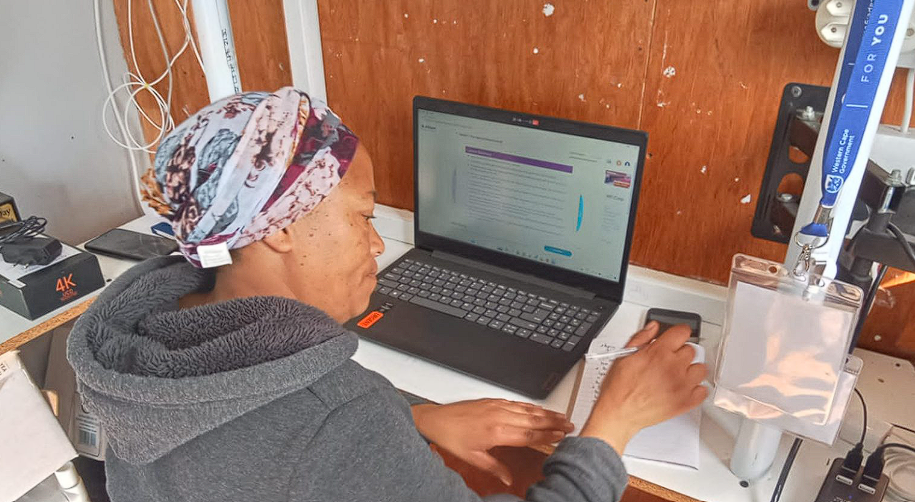Articles
Recognising foodbanks as key stakeholders in solving food insecurity, malnutrition, and climate
-
4 months ago
Foodbanks may have started out as altruistic charitable non-profit organisations that distributed food to those who have difficulty purchasing enough to avoid hunger, but they have long since evolved to become key strategic partners in tackling some of the world’s most urgent challenges – food insecurity, malnutrition and climate change.
While the foundational principles of Foodbanks remain the same - alleviating hunger and food insecurity, addressing child and maternal malnutrition, and preventing good quality, edible surplus food from ending up in landfills, today, Foodbanks are much more advanced, innovative, sophisticated, and are strategically placed as key stakeholders to work alongside supply chain actors in a symbiotic relationship, offering business to business (B2B) solutions.
There are several reasons why Foodbanks in general have not been able to shed this negative charitable perception. These include primarily a lack of funding, as donors generally are reluctant to financially support what are principally operational costs to run Foodbanks, but they ignore the leverage and catalytic effects of their work – diverting good food away from landfills, which is a great climate mitigation solution, and increasing access to food by getting this nutritious food to communities that need it at a fraction of the cost of procuring food. When considering the total retail value of food recovered over a year, in relation to the cost to run a FoodBank for a year, the cost is often less than 5%.
Secondly, the lack of funding restricts Foodbanks’ ability to scale this highly efficient and cost-effective model and limits their ability to attract very capable people that may require higher salaries, but who in turn are able to elevate the status and impact of Foodbanks.
A third reason is related to the first – not effectively marketing their good work. Foodbanks with limited funding are loathed to spend large amounts of money on marketing, when they have to cover their operational costs to keep the lights on.
Foodbanks are well organised, draft and implement effective strategic plans, are better resourced, and can offer tax incentives for food donations. Many Foodbanks operate on sound business principles and can demonstrate impressive Social Return on Investment impact to donors in respect of better access to nutritious food, show data tracking around methane mitigation by redirecting surplus food, reducing child and maternal malnutrition, and reducing onerous dumping costs to farmers, manufacturers and retailers.
Foodbanks like FoodForward SA (FFSA) form partnerships with various tertiary institutions to conduct research around supply chain optimisation, social return on investment impact studies, household food security, child and maternal malnutrition, and feasibility studies in relation to carbon credits, dehydration, food production etc. which may lead to real life solutions being developed and implemented. Foodbanks are also key advocates for policy changes relating to food donations, date labelling, and food loss and waste reduction.
The Global FoodBanking Network (GFN) and the European FoodBanks Federation (FEBA) are two global institutions that have been working tirelessly to demonstrate to the world that the intrinsic mission of Foodbanking is integral and complimentary to the transformation of global and local food systems which are either deeply flawed or simply broken.
According to the Global Methane Hub (GMH) “Addressing methane pollution is the fastest way to drive down global temperatures, noting that methane is incredibly potent – 86 times more than CO2 – which means curbing pollution here can help stave off catastrophic changes to the climate. A super pollutant, methane is responsible for roughly 45% of recent net global warming.”
On 29 September we marked the United Nations (UN) International Day of Awareness of Food Loss and Waste and on 16 October we will celebrate the UNs World Food Day, which is not only a day that the world celebrates the founding of the UN Food and Agriculture Organisation (FAO), but also a call to all of us involved in or connected to food systems that food loss and waste and food insecurity are parallel issues that are some of the greatest food system challenges today.
More than one third of all the food produced globally (2,5 billion tons) is lost or wasted each year, causing severe damage to our planet and ecosystems. We have a collective responsibility to acknowledge this and work towards urgent collective action to address it.
Surplus food recovery is one of the strongest levers to successfully reduce food waste / methane and mitigate against climate change. Given the scale of the problem, Foodbanks must be recognised as an essential part of the food systems transformation process. If you know of a Foodbank near you, please get involved and be part of the solution.
Related Articles Posts
Categories
Popular Post
-
 SA’s IT spend to outpace GDP growth 1 year ago
SA’s IT spend to outpace GDP growth 1 year ago -
 Vodacom, Netstar launch free in-taxi Wi-... 1 year ago
Vodacom, Netstar launch free in-taxi Wi-... 1 year ago -
 South Africa under pressure to fill cybe... 1 year ago
South Africa under pressure to fill cybe... 1 year ago -
 Organisations with a strong employee val... 1 year ago
Organisations with a strong employee val... 1 year ago -
 Joint policy-in-action event highlights... 1 year ago
Joint policy-in-action event highlights... 1 year ago -
 Boost your digital transformation journe... 1 year ago
Boost your digital transformation journe... 1 year ago








